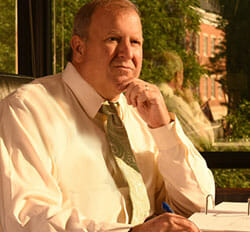Nursing Home Residents Whose Medicare Payments End Find Themselves Headed for the Door
August 9th, 2016 by Attorney Roger Weinberg
Short-term rehabilitation is where the Medicare money is, so increasingly Maryland nursing homes are prioritizing those patients over traditional long-term care residents. That’s because Medicare payments for short-term care are 84% higher than Medicaid payments for long-term care. Many long-term care patients rely on Medicaid, the government health care program for the indigent, to pay their nursing home bills.
In their rush for more profitable Medicare patients, many facilities accept more patients than they can handle. Since Medicare pays only for a limited stay, once that time is up many facilities are desperate to get these patients out so more profitable patients can come in, according to an article in the New York Times. Medicare will pay for skilled nursing care for up to a hundred days (the patient is partially responsible for paying starting day 21).
These Medicare patients are often lured in by promises of resort-like care in luxurious surroundings. What they actually get beyond the ritzy reception area are rooms and care that leave a lot to be desired. Many of these facilities are often short on nurses and aides and do not have doctors on staff.
A 2014 report by the Department of Health and Human Services’ Office of the Inspector General found:
Many long-term nursing home residents are being moved to assisted-living facilities as hospitals discharge patients earlier. About 9% percent of residents in an average nursing home were covered by Medicare in 2000, and by 2014 that had risen to 15%.
These nursing homes are taking on Medicare patients they’re not always able to properly care for. Many patients leave hospitals with acute medical needs, before infections are fully treated, or while they’re adjusting to new medications. Hospitals are discharging patients unable to go home to these rehab centers/nursing homes to cut costs. They should be looking for facilities with high quality care, because Medicare can penalize hospitals who have too many patients readmitted within a certain time.
Dr. Lois Johnson-Hamerman, a retired neonatologist, is one patient caught up in the changing medical care landscape, according to the article. She checked into the Watermark at Logan Square, a nursing facility in Philadelphia, due to an injured foot. It promised “top-notch health care” with a staff willing to administer a “decadent hot bath” at any hour of the day; it had a good reputation for quality and got high marks from the federal government.
A one month after arriving at Watermark for short-term rehabilitation in 2012, she found herself in an emergency room with a dangerously infected bedsore. Dr. Johnson-Hamerman didn’t get the care she was promised. She never got a full bath or shower, staff was slow to change her diaper, and she was not turned every few hours, a crucial step in preventing bedsores.
She left Watermark only after friends, including doctors and nurses, insisted she needed to go to a hospital. Dr. Johnson-Hamerman sued Watermark for the negligent care she received. “At least I’m still here,” she told the Times. “But where would I be if I didn’t have the friends and resources to do something about it?”
If you or a loved one has suffered neglect or abuse at a Maryland nursing home, we can help you address the situation and hold those responsible accountable for their actions. At the Law Offices of Roger S. Weinberg, you’ll find compassionate support and experienced advocates to help your family through the tough times. Call 410-825-3161 today to schedule a free consultation.


 Roger Weinberg is a skilled and experienced attorney who has pioneered the legal field of representing Nursing Home, Assisted Living, and Developmental Disability victims and their families who have experienced abuse, neglect and wrongful death. He is a leader in this field and teaches other lawyers, students and medical personnel about the laws impacting such cases. [
Roger Weinberg is a skilled and experienced attorney who has pioneered the legal field of representing Nursing Home, Assisted Living, and Developmental Disability victims and their families who have experienced abuse, neglect and wrongful death. He is a leader in this field and teaches other lawyers, students and medical personnel about the laws impacting such cases. [ 



